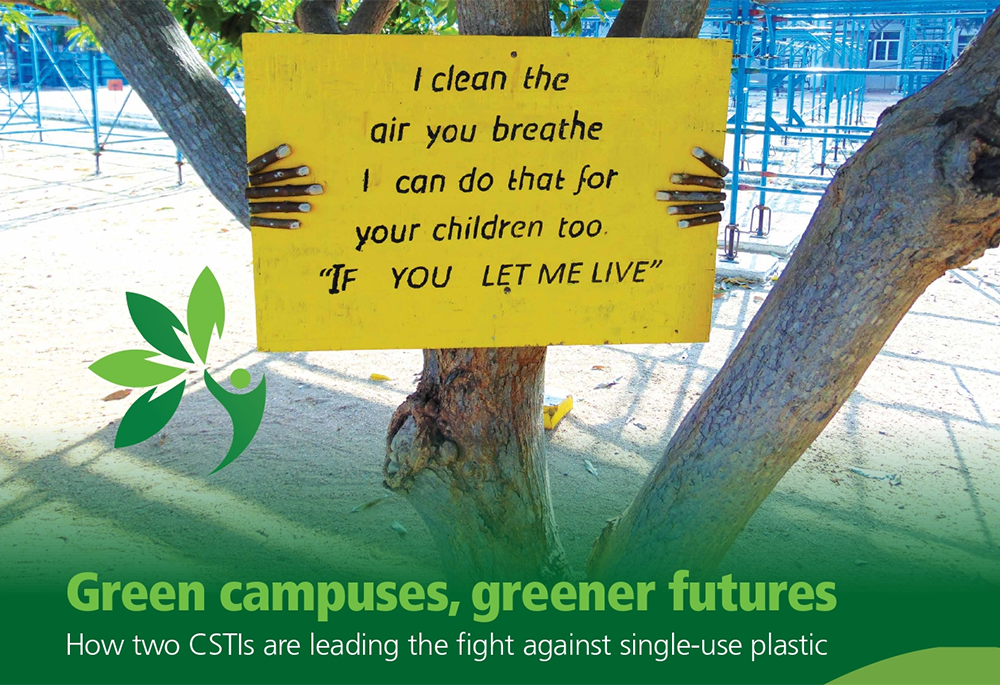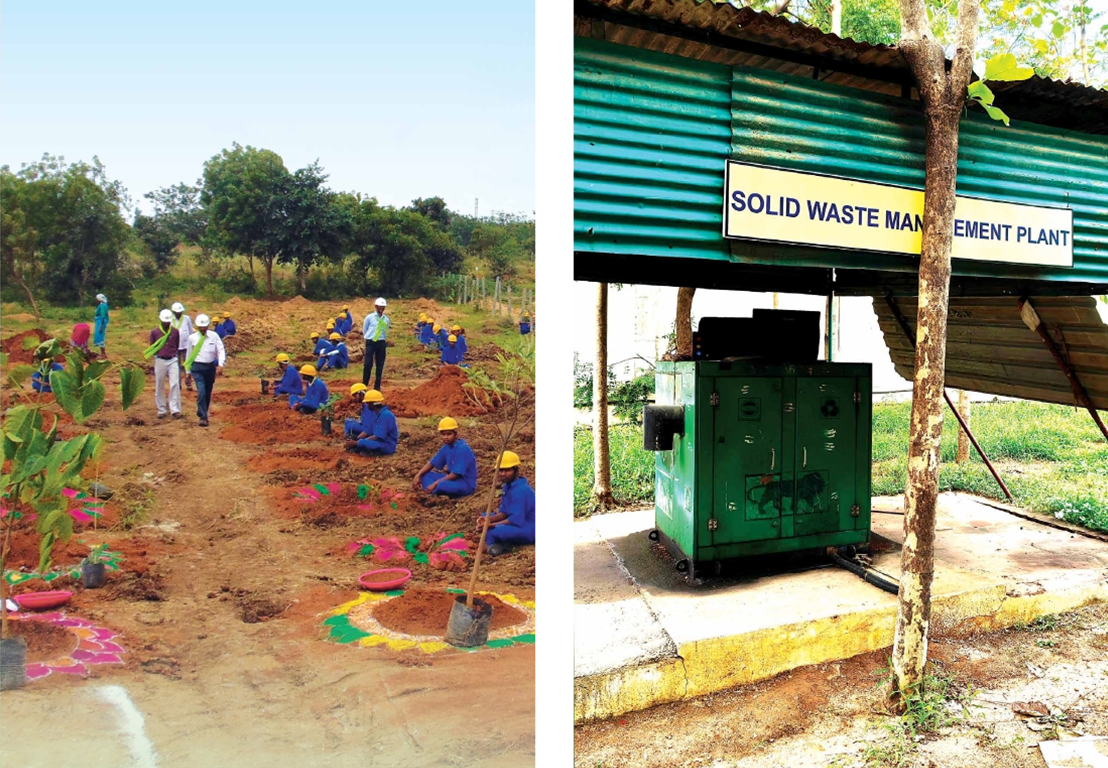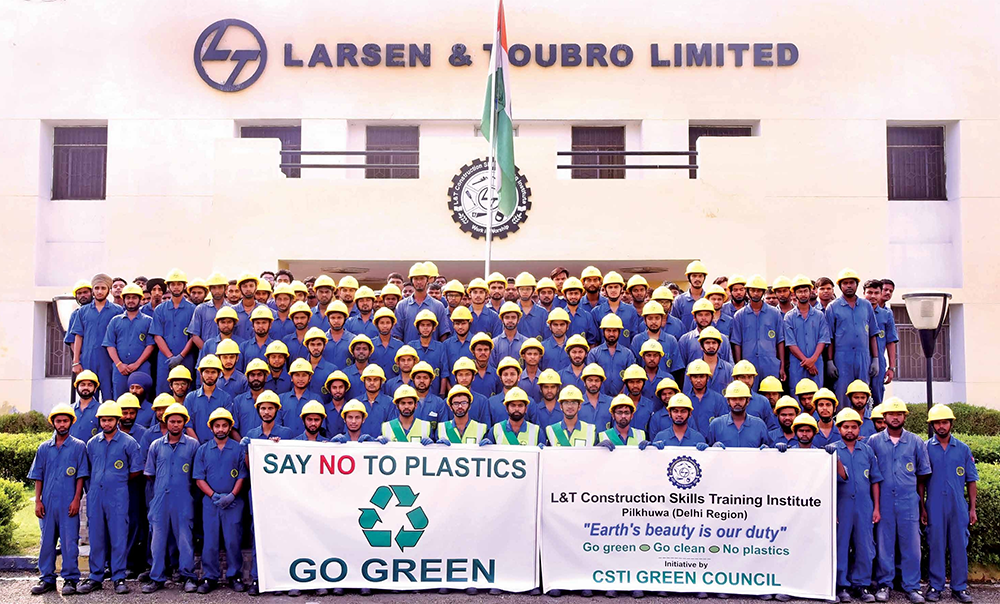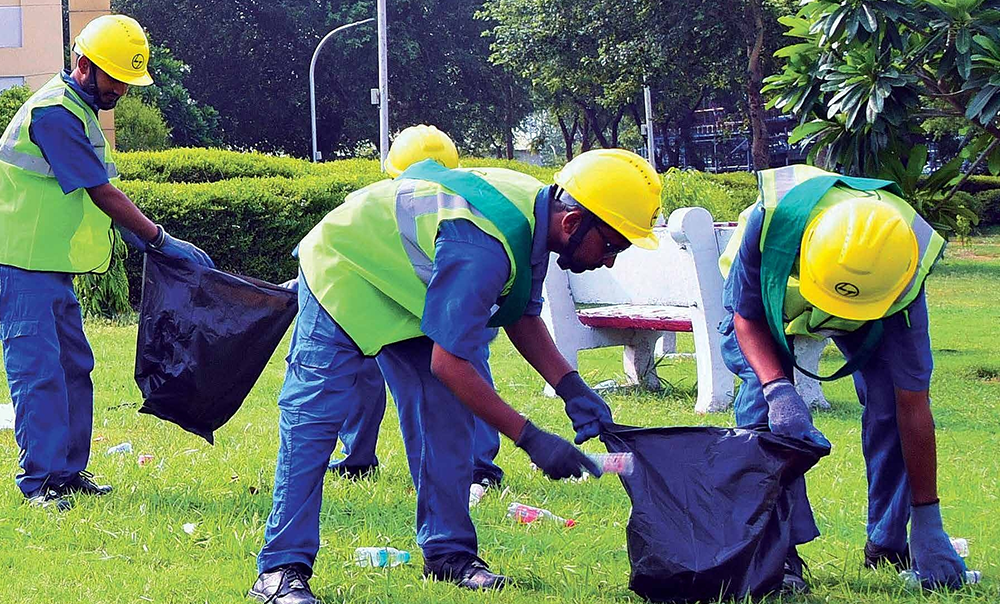
At a time when climate consciousness is no longer optional but imperative, two Construction Skills Training Institutes (CSTIs), Jadcherla in Telangana and Pilkhuwa in Delhi NCR, are showing the way by eliminating single-use plastics from their campuses. What began as a sustainability pledge has now evolved into a full-fledged movement, with employees & trainees alike embracing eco-friendly living as second nature.
![]()
Every day we demonstrate how it’s possible to make the world better in our little way through green initiatives. Now, everyone on campus, from employees to trainees, has a green heart. We’ve learnt to nurture the environment.
Deepak Sharma
Principal, CSTI Jadcherla
![]()

CSTI Jadcherla – A decade of green dedication
The green transformation at CSTI Jadcherla began back in June 2015, with a resolute decision to make the campus completely free of single-use plastic. “It wasn’t an easy decision,” admits Deepak Sharma, Principal, CSTI Jadcherla. “Each year, over a thousand trainees pass through our gates, and creating awareness among them, our housekeeping staff, trainers, and security personnel was a big task. But today, it’s become a way of life here,” he smiles proudly.
The change was systematically orchestrated with awareness sessions, stickers at key locations, and trainees given jute bags and refillable PET bottles. During their weekly visits to the market during their 90-day stay at the campus, the trainees used to accumulate a considerable amount of plastic waste. “We calculated that over the past ten years, we have prevented the usage of nearly 1.5 lakh plastic bags and bottles, not to mention countless sachets that used to clog our drainage systems,” Deepak notes.
Beyond banning plastic, CSTI Jadcherla has cultivated a lush, sustainable ecosystem. The campus boasts a 113 kWp solar plant, a 100 kg/day solid waste management system, over 1,000 fruit-bearing trees, and vibrant gardens teeming with flowers, butterflies, and birds. This is a training ground not just for technical skills but for environmental care as well.
“Every day we demonstrate how it’s possible to make the world better in our little way through green initiatives,” says Deepak. “Now, everyone on campus, from employees to trainees, has a green heart. We’ve learnt to nurture the environment.”

CSTI Pilkhuwa – Where sustainability is a lifestyle
Further north, at CSTI Pilkhuwa, the move towards a plastic-free environment is not just a policy; it’s a lifestyle embedded into every aspect of campus life. “By adopting a plastic-free policy, not only is our CSTI reducing its environmental footprint but it is a role model for sustainable living too,” says Kamaljit Singh Mehrok, Principal, CSTI Pilkhuwa.

![]()
Our objective is not to just ban plastic we are instilling lifelong habits – responsible consumption, environmental care, and collaborative action – and hopefully when our trainees leave this campus, they will carry these values into their workplaces and communities.
Kamaljit Singh Mehrok
Principal, CSTI Pilkhuwa
![]()
The institute has carefully designed a holistic zero-plastic system, starting with water refill stations to discourage bottled water and steel utensils & personal kits provided to every trainee. Trainees are strictly advised to bring only steel plates and cups, and the use of plastic bottles, cutlery, and packaging is banned within the premises.


The on-campus shop supports the initiative by stocking plastic-free items, while the mess sources locally grown vegetables and grains in jute bags. Even the hostel kitchen has switched to bulk storage using wooden bins and encourages a tiffin system for takeaways. Waste segregation bins are thoughtfully placed across the campus for composting and recycling.
A ‘CSTI Green Council’ comprising employees and trainees keeps the spirit of sustainability alive by conducting plantation drives, running workshops like ‘Zero Plastic Week’, and monitoring compliance. The campus is home to 369 trees, each tagged and cared for, transforming the area into a green haven.
Incentives play a role as trainees receive an additional 10 marks during their final assessments for volunteering in green initiatives. From refillable shampoo stations to cloth banners for events, every detail reinforces the institute’s commitment to sustainability.
“Our objective is not to just ban plastic,” Kamaljit emphasizes. “We are instilling lifelong habits – responsible consumption, environmental care, and collaborative action – and hopefully when our trainees leave this campus, they will carry these values into their workplaces and communities.”
The success stories of CSTI Jadcherla and CSTI Pilkhuwa underscore a powerful truth: change begins at the grassroots. Through actions, awareness, and ownership, these institutes are proving that sustainability can be woven seamlessly into the fabric of daily life.